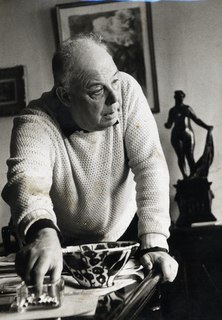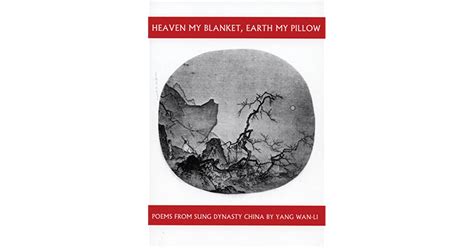A Quote by Joseph Campbell
I think of mythology as the homeland of the muses, the inspirers of art, the inspirers of poetry. To see life as a poem and yourself participating in a poem is what the myth does for you.
Related Quotes
Truly fine poetry must be read aloud. A good poem does not allow itself to be read in a low voice or silently. If we can read it silently, it is not a valid poem: a poem demands pronunciation. Poetry always remembers that it was an oral art before it was a written art. It remembers that it was first song.
The subject of the poem usually dictates the rhythm or the rhyme and its form. Sometimes, when you finish the poem and you think the poem is finished, the poem says, "You're not finished with me yet," and you have to go back and revise, and you may have another poem altogether. It has its own life to live.
To the question, ‘Is the cinema an art?’ my answer is, ‘what does it matter?’... You can make films or you can cultivate a garden. Both have as much claim to being called an art as a poem by Verlaine or a painting by Delacroix… Art is ‘making.’ The art of poetry is the art of making poetry. The art of love is the art of making love... My father never talked to me about art. He could not bear the word.
I think that poetry is an act of celebration, that anytime you're writing a poem, it means that you're celebrating something, even if it's a sad poem, if it's an angry poem, a political poem or anything at all. The fact that you're taking the time and energy to pick up this thing and hold it to the light, and say, "Let's take some time to consider this," means that you've deemed it worthy enough to spend time on - which, in my opinion, is celebrating.
I should think that many of our poets, the honest ones, will confess to having no manifesto. It is a painful confession but the art of poetry carries its own powers without having to break them down into critical listings. I do not mean that poetry should be raffish and irresponsible clown tossing off words into the void. But the very feeling of a good poem carries its own reason for being... Art is its own excuse, and it’s either Art or it’s something else. It’s either a poem or a piece of cheese.
One day while studying a Yeats poem I decided to write poetry the rest of my life. I recognized that a single short poem has room for history, music, psychology, religious thought, mood, occult speculation, character, and events of one's own life. I still feel surprised that such various substances can find shelter and nourishment in a poem. A poem in fact may be a sort of nourishing liquid, such as one uses to keep an amoeba alive. If prepared right, a poem can keep an image or a thought or insights on history or the psyche alive for years, as well as our desires and airy impulses.
I keep feeling that there isn't one poem being written by any one of us - or a book or anything like that. The whole life of us writers, the whole product I guess I mean, is the one long poem - a community effort if you will. It's all the same poem. It doesn't belong to any one writer - it's God's poem perhaps. Or God's people's poem.
The poem is not, as someone put it, deflective of entry. But the real question is, 'What happens to the reader once he or she gets inside the poem?' That's the real question for me, is getting the reader into the poem and then taking the reader somewhere, because I think of poetry as a kind of form of travel writing.
I just think that the world of workshops - I've written a poem that is a parody of workshop talk, I've written a poem that is a kind of parody of a garrulous poet at a poetry reading who spends an inordinate amount of time explaining the poem before reading it, I've written a number of satirical poems about other poets.

































